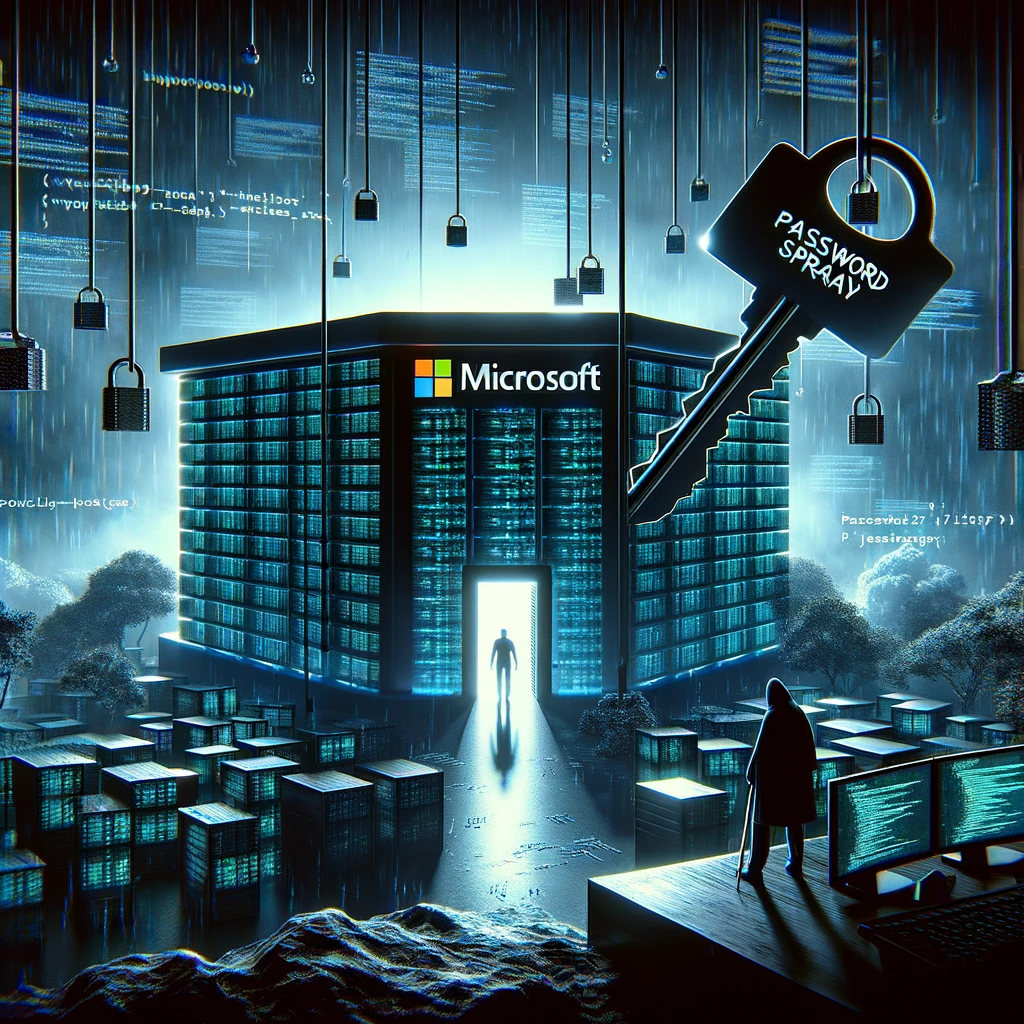Breaking Down the Breach: Lessons from Microsoft's Password Spray Attack
Charles M. Walls | March 25, 2024 | Views: 198

In January 2024, a revelation shook the tech world when Microsoft fell victim to a cybersecurity breach, not by an elaborate cyber assault but through a straightforward password spray attack. This breach, carried out by the Russian-state associated group Midnight Blizzard, also known under the alias Nobelium, utilized an old, inactive account to penetrate the defenses of this tech behemoth. The simplicity of the attack method underscores a critical lesson about the importance of robust password security across all user accounts.
The intrusion commenced in November 2023 when Midnight Blizzard employed a brute force tactic known as password spraying. This approach involves attempting a common password across numerous accounts until one grants access. Through this method, the attackers managed to breach a legacy test account within Microsoft's system, securing an initial entry point. Despite the account's low activity and privilege level, it became a gateway for the hackers to escalate their access.
Over a span of seven weeks, the attackers sifted through emails and documents, affecting a minor fraction of Microsoft's corporate email accounts, some of which belonged to top executives and cybersecurity and legal staff. The breach was detected on January 12th, prompting immediate countermeasures by Microsoft's security team to halt the intrusion and secure their systems.
The breach highlights a crucial vulnerability in cybersecurity practices: the potential for seemingly insignificant accounts to become conduits for significant breaches. Attackers can leverage any foothold within an organization to escalate their access and reach sensitive information.
This incident is a stark reminder of the necessity for comprehensive account security strategies, including the protection of inactive or low-privileged accounts. These accounts often possess outdated or weak passwords, making them prime targets for initial breaches. Once compromised, they can serve as a stepping stone for attackers to deepen their penetration into a network, elevating their privileges to access critical data.
Moreover, such accounts may not be subject to rigorous security policies, such as strong password requirements or multi-factor authentication (MFA), making them attractive targets for hackers. From their perspective, even a low-level access point can be exploited to navigate and extract valuable data from an organization.
The breach at Microsoft calls for a heightened awareness and prioritization of user account security across the board. Implementing stringent password policies, enabling MFA, conducting regular audits, and scanning for compromised passwords are essential steps to fortify defenses against similar threats.
Organizations should conduct thorough audits to identify and secure inactive accounts, alongside enforcing password policies that preclude easily guessable passwords. MFA, while an effective security layer, should be part of a holistic security strategy that includes strong password protocols.
Additionally, the adoption of tools that continuously monitor for compromised passwords can significantly mitigate risks. With Specops Password Policy and Breached Password Protection, organizations can leverage automated defenses against the use of known compromised passwords, enhancing their security posture against password spraying and reuse threats.
In conclusion, the Microsoft incident serves as a critical call to action for all organizations to reevaluate and reinforce their cybersecurity measures. By acknowledging the importance of every account, from the most inactive to the highest privileged, and adopting comprehensive security measures, businesses can shield themselves more effectively against the evolving landscape of cyber threats.











